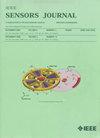Weighted Average Consensus Filtering for Continuous-Time Linear Systems With Asynchronous Sensor Measurements
IF 4.3
2区 综合性期刊
Q1 ENGINEERING, ELECTRICAL & ELECTRONIC
引用次数: 0
Abstract
In practical sensor networks, especially heterogeneous sensor networks, sensor nodes may have distinct sampling periods and initial sampling time instants, probably their observations are also nonuniform. However, the distributed consensus state estimation problem for continuous-time linear systems in such asynchronous sensor networks has not been addressed in the literature. To solve this problem, this article proposes a consensus filtering algorithm for distributed state estimation over asynchronous sensor networks based on the weighted average consensus strategy. First, asynchronous measurements at each sensor node within a given filtering interval are transformed to the consensus filtering time instant according to the continuous-time system dynamics. Statistical characteristics of converted measurement noises are carefully exploited as well as their cross-correlations induced by the synchronization procedure. It is also discovered that the converted measurement noises are one-step correlated with the discretized process noise. Second, measurements after synchronization are used to update local estimates at sensor nodes with the above correlations taken into account and weighted average consensus iterations are performed based on information interactions of sensor nodes with their neighbors. Finally, the estimation error of the proposed asynchronous consensus filtering algorithm is proved to be exponential mean-square bounded, and its effectiveness is evaluated by a simulation example.求助全文
约1分钟内获得全文
求助全文
来源期刊

IEEE Sensors Journal
工程技术-工程:电子与电气
CiteScore
7.70
自引率
14.00%
发文量
2058
审稿时长
5.2 months
期刊介绍:
The fields of interest of the IEEE Sensors Journal are the theory, design , fabrication, manufacturing and applications of devices for sensing and transducing physical, chemical and biological phenomena, with emphasis on the electronics and physics aspect of sensors and integrated sensors-actuators. IEEE Sensors Journal deals with the following:
-Sensor Phenomenology, Modelling, and Evaluation
-Sensor Materials, Processing, and Fabrication
-Chemical and Gas Sensors
-Microfluidics and Biosensors
-Optical Sensors
-Physical Sensors: Temperature, Mechanical, Magnetic, and others
-Acoustic and Ultrasonic Sensors
-Sensor Packaging
-Sensor Networks
-Sensor Applications
-Sensor Systems: Signals, Processing, and Interfaces
-Actuators and Sensor Power Systems
-Sensor Signal Processing for high precision and stability (amplification, filtering, linearization, modulation/demodulation) and under harsh conditions (EMC, radiation, humidity, temperature); energy consumption/harvesting
-Sensor Data Processing (soft computing with sensor data, e.g., pattern recognition, machine learning, evolutionary computation; sensor data fusion, processing of wave e.g., electromagnetic and acoustic; and non-wave, e.g., chemical, gravity, particle, thermal, radiative and non-radiative sensor data, detection, estimation and classification based on sensor data)
-Sensors in Industrial Practice
 求助内容:
求助内容: 应助结果提醒方式:
应助结果提醒方式:


